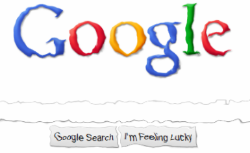 Search giant Google is facing massive copyright-related pressure in the United States on several fronts, not least the recent consultation on the efficacy of the DMCA and the FCC’s proposals to open up the set-top box market.
Search giant Google is facing massive copyright-related pressure in the United States on several fronts, not least the recent consultation on the efficacy of the DMCA and the FCC’s proposals to open up the set-top box market.
Over in Europe, Google faces other issues, including charges that it abused its web search dominance to push its own shopping products and its control of Android to corral users into using Google software. Piling on the pressure, Google is now set to face another European Commission grilling over alleged copyright infringement in Google Images.
This morning Washington-based Getty Images says it will file a complaint with the European Union’s antitrust commission over what it describes as Google’s piracy of its copyright content.
According to an FT report, Getty will accuse Google of undermining its business by harvesting Getty stock images in a manner that “siphons traffic” away from the company’s premium website.
The complaint says that pre-January 2013, Google displayed only low-resolution thumbnails of third party images in Google Image search. However, soon after the company switched to a large, high-resolution slideshow format. This, Getty says, was Google abusing its dominance of Internet image searches.
Getty general counsel Yoko Miyashita says Google’s reproduction of high-res images means that people searching for Getty content via Google have less reason to leave the search giant’s Images services, thus depriving Getty of legitimate traffic.
Google “promoted piracy,” Miyashita says, “resulting in widespread copyright infringement, turning users into accidental pirates.”
As evidence that it was Google’s decision, not outside factors, that caused the drop in traffic to Getty’s site, Miyashita says that traffic collapsed in 2013 immediately after Google made changes on its .com and .co.uk domains. However, Google did not immediately implement the features on its .FR and .DE variants from where traffic remained healthy.
Getty says that it reported its complaints to Google in 2013 but rather than make changes, Google told the company it could either live with the situation or completely opt out of its image search feature.
While offering a solution this is somewhat of a catch-22 situation. On the one hand Getty can accept Google’s use of its content in order to boost visibility on the web, or opt out altogether and face disappearing from search altogether.
In this instance Getty chose to stay on board with Google, describing a complete exit as not being “viable”. Today’s complaint envisions the EU leveling the playing field on Getty’s behalf.
“By standing in the way of a fair market place for images, Google is threatening innovation and jeopardizing artists’ ability to fund the creation of important future works,” Miyashita says.
In due course the European Commission will have to decide whether Google has broken competition rules. Google declined to comment on the case but denies any wrong-doing.





